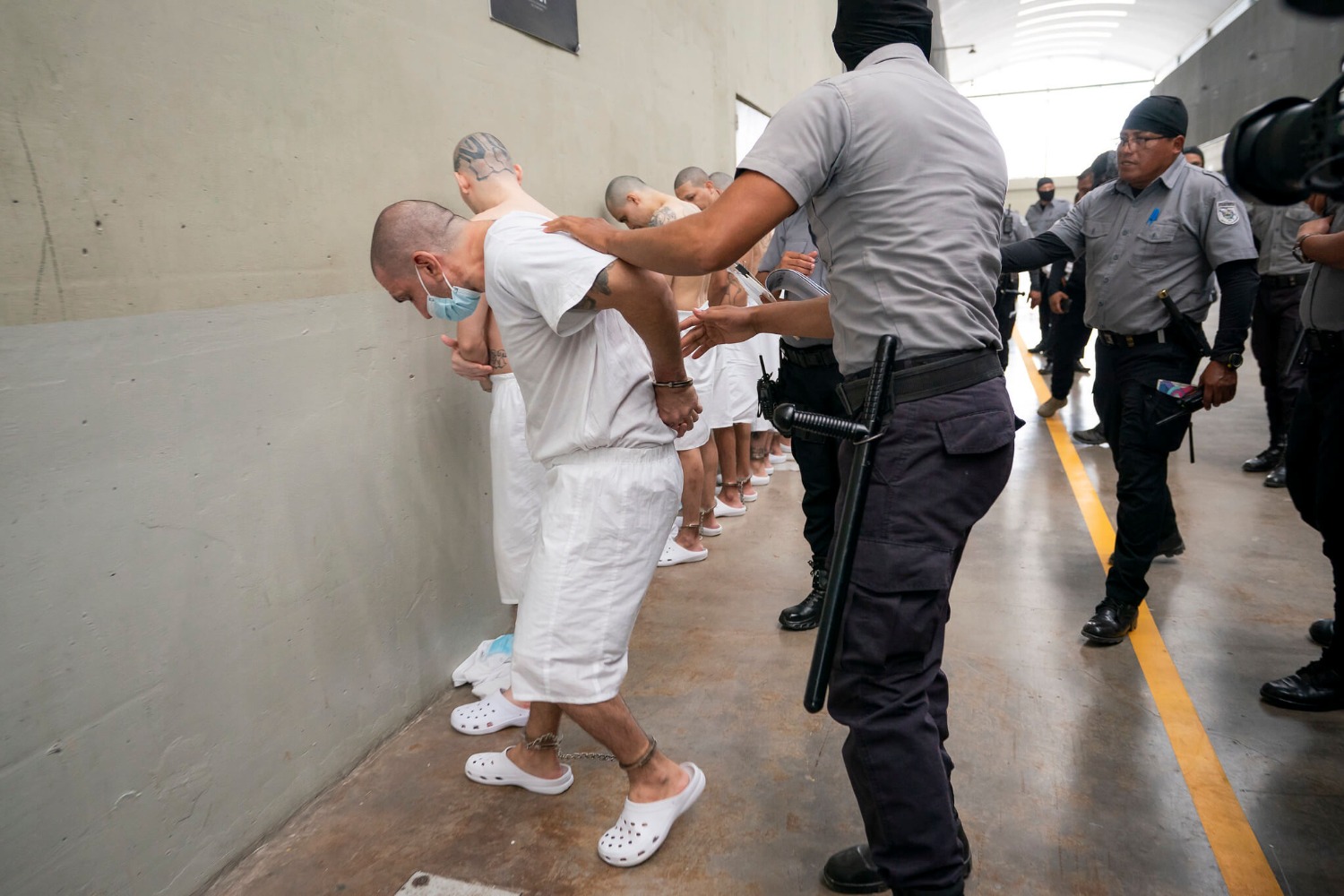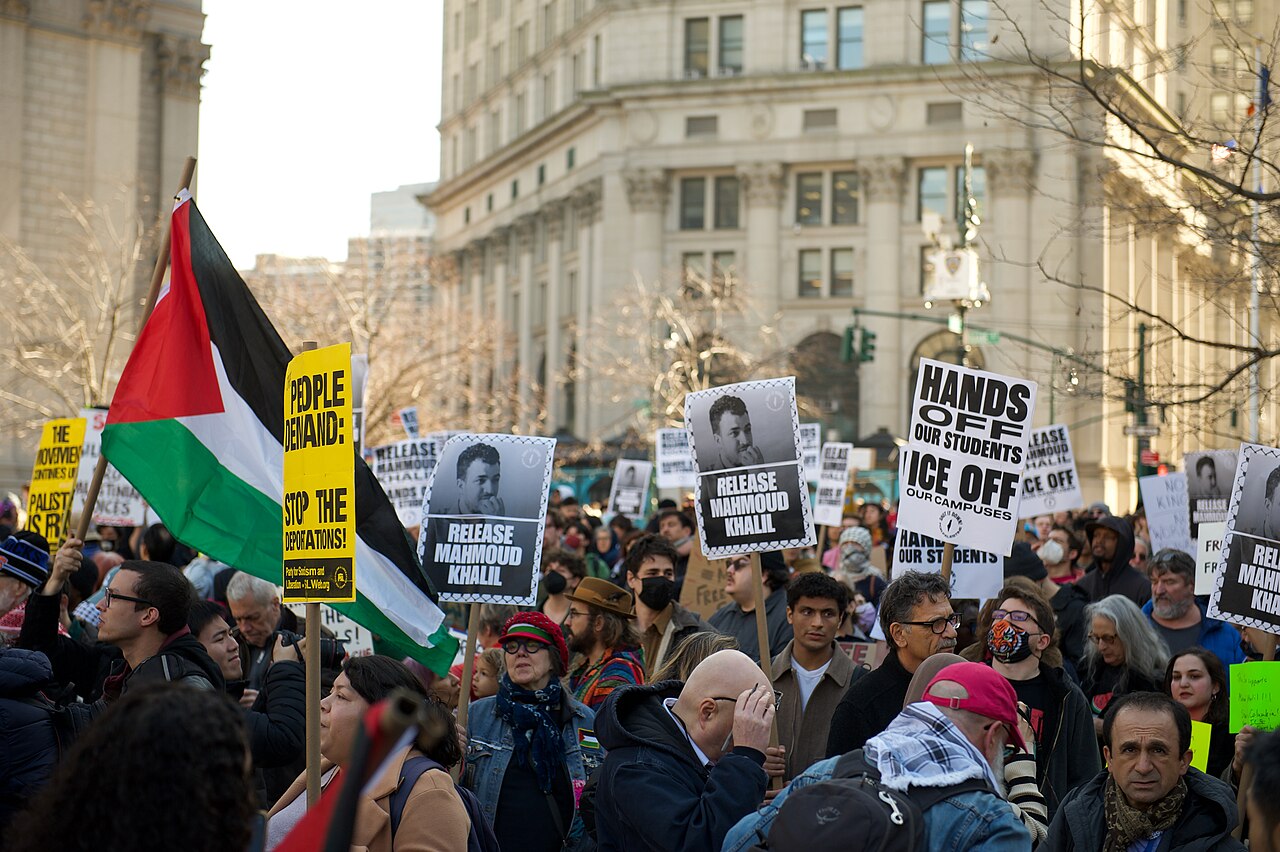A Trump Jan. 6 Indictment Appears to Be Imminent
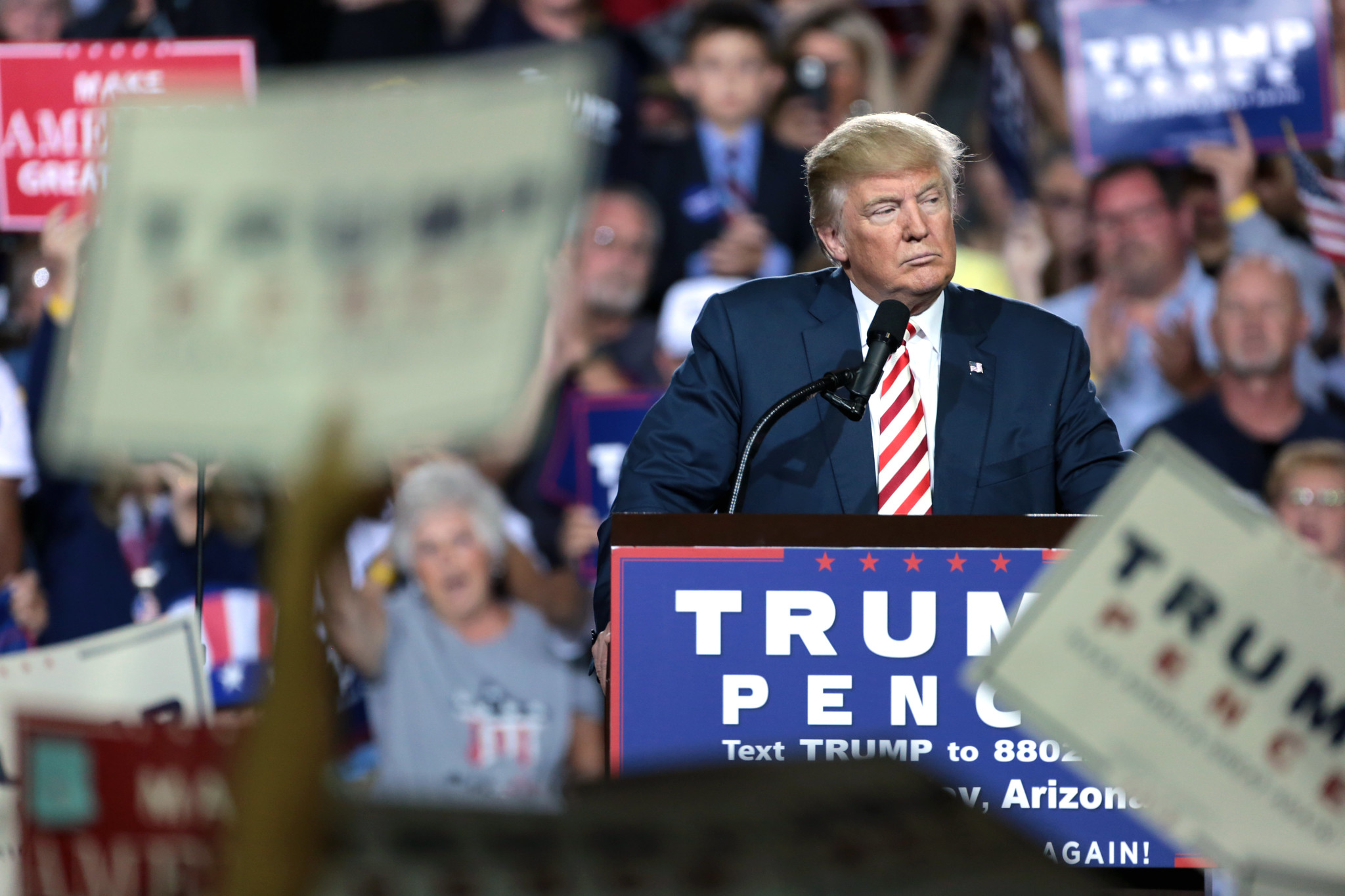
Published by The Lawfare Institute
in Cooperation With

This morning, Former President Donald Trump issued the following statement on his Truth Social website. I replicate it here for the reader’s convenience in its entirety:
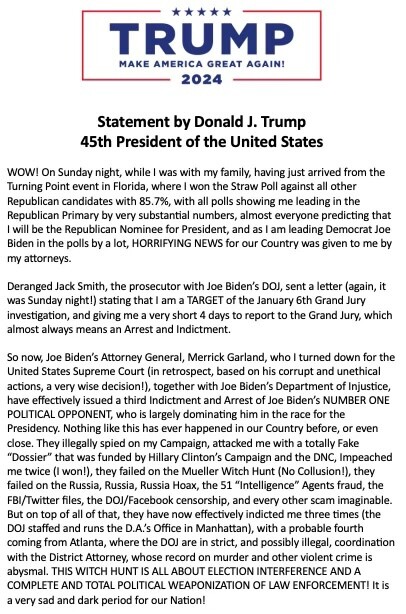
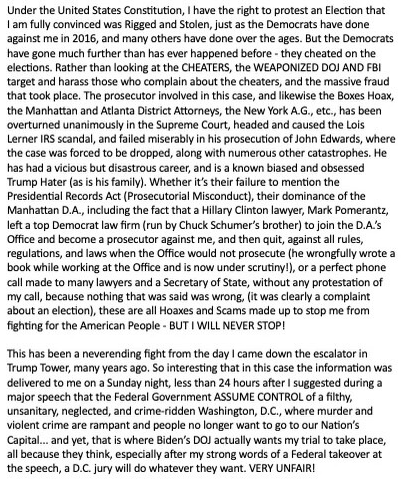
There are very few facts in Trump’s statement, but it does seem to say clearly enough that on Sunday evening, Trump received a target letter from Special Counsel Jack Smith in the Jan. 6 investigation. Trump also claims that the letter gave him “a very short 4 days to report to the Grand Jury.”
Trump is not a reliable narrator on factual matters, but he has twice before announced that he expected to be indicted and been right both times. There seems to me little reason to suspect that he would make up his receipt of a target letter—especially because we know from news reporting that the Jan. 6 grand jury has been active and was clearly approaching the decision-making phase of its work. Indeed, only on Friday, I noted that the absence of a target letter story in the press was the only reason to think an indictment wasn’t yet imminent at that time: “It sure looks like we’re basically at decision time. Except for one thing—and I think the one thing is overwhelmingly likely to happen before an indictment does. We have not seen a story about a target letter, a meeting with Trump’s lawyers, a negotiated surrender, or an indictment filed under seal.”
Well, thanks to Trump, that one thing is now in place. A target letter almost always precedes an indictment by only a short time. So it’s reasonable to infer that if Trump has received one, the indictment will follow soon.
Trump offers another useful factual claim, which is his vague reference to a time frame. It’s not clear precisely what he means by “giving me a very short 4 days to report to the Grand Jury,” but I suspect it means that prosecutors have invited him to testify before the grand jury and given him a deadline of Thursday to do so. That would likely mean an indictment will immediately follow the lapse of that deadline, assuming Trump does not actually show up. The indictment will likely be filed under seal so as to allow an orderly process for Trump to show up for surrender and arraignment—as happened with the Mar-a-Lago indictment.
A few additional inferences are possible. This indictment will take place in Washington, D.C. We know this not merely because Trump claims it in the last paragraph of his statement. We know it also because the grand jury has been meeting for months at the courthouse here in Washington, and unlike with the Mar-a-Lago case, that has continued up until the present; the locus of activity has not shifted elsewhere as it did in the Mar-a-Lago case, which was taken up late in the game by a grand jury in Florida.
One thing Trump gives no sign of in his statement is what he will be charged with. The possibilities here are broad. There has been a lot of talk in the press about possible wire fraud charges in connection with some of the post-election fundraising. There is also the possibility of charges in connection with the pressure exerted on Vice President Pence and other elected officials or Trump’s efforts to procure fake electors. The subject matter of the indictment also has implications for the possibility of possible co-defendants—if any—a subject on which Trump is also silent. We do know, however, because of the subject matter of the grand jury investigation and the limitations of Smith’s jurisdictional mandate that the charges will concern Jan. 6 in some meaningful sense.
There is no point speculating about these matters at this stage, although that surely won’t stop cable news pundits from doing so incessantly until the text of any indictment becomes public. The most one can responsibly say is that a third indictment appears to be forthcoming, and that it’s reasonable to expect the grand jury to act as early as the end of this week.


.jpg?sfvrsn=676ddf0d_7)
